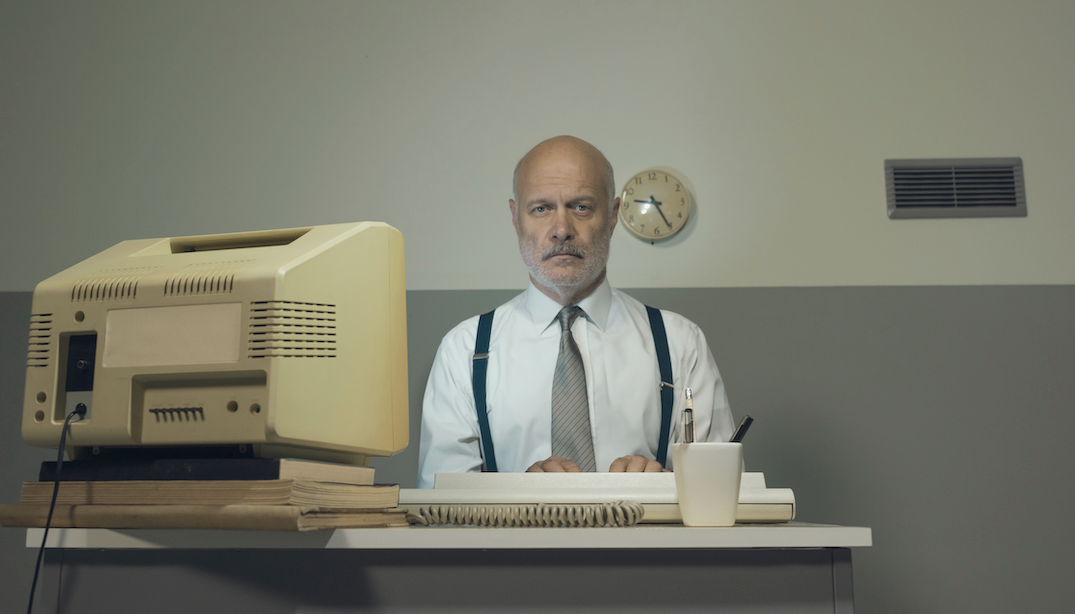Why most consulting is bullshit

- Consulting is an industry that has had some major success, but its reputation has suffered in recent years.
- One reason is that consultants often force "tried-and-true" approaches on companies that, for various reasons, are not prepared to implement them.
- To be most effective, consultants should be like medical doctors seeking to diagnose the underlying problem rather than just treating the symptoms.
There’s a long-standing joke that a consultant is someone who “takes the watch off your wrist and tells you the time.” It’s funny because it’s partly true. Consultants can really suck. We’ve all experienced a consultant or two in our time, and often the resulting stories are ones of terrible experiences with unclear outcomes at best, and expensive organizational distractions at worst.
I say this because I live it. I’ve been a consultant for over a decade, working with clients across multiple industries and sizes. Some engagements are healthy and evergreen. Some have died a painful, slow, and guilt-ridden death.
The problem with consulting is that you frequently begin work on one premise, which then metamorphosizes into a series of rabbit holes and misdirection, riddled with misinformation, from which you need to draw the right conclusion and path forward. For example, one client contracted us to help reduce employee attrition, only to insist the solution was to rewrite the organization’s mission statement and values.
This isn’t to say that the client is always to blame. In fact, many times they don’t exactly know what they want. Or the organization itself changes mid-stream, whether it be internal or external factors at play. This combination of environmental, cultural, and contextual forces often sets consultants up for a complicated relationship, which many consultants fail to navigate effectively.
Two conflicting mindsets
As a consultant, you must hold two conflicting mindsets simultaneously — one of expertise and knowledge, and the other of humility and naiveté. In essence, there are things you know from your experience and education, and other things you are clueless about within the client’s organization that you’re serving. The problem with most consultants is they ignore the latter — believing their insight, methodology, approach, or perceptions are correct, and that the organization simply needs to adapt its behavior and mindset to embrace the new.
However, this is exactly what consultants shouldn’t do. In fact, it’s the primary reason why many consultants lack staying power. They fail to adapt and pivot quickly and early when the environment and context begin to change. They plow ahead with their methodology, believing this is what they were hired for, and that with a little more convincing and persistence, the organization will reach the “Aha!” moment and embrace it. Yet — and I can attest to this personally — that is a futile endeavor, and such an attitude only continues to tarnish the reputation of an industry which truly has contributed significant value to help some companies succeed.
As consultants, it’s natural to drink your own Kool-Aid. The problem is being drunk on it. The “Big 4” firms have even made an industry out of it by serving up proprietary processes at exorbitant hourly rates. There’s no question that these companies have taken extensive time to study and develop approaches to solving common business challenges in a repeatable, scalable, and measurable way. The issue is that companies aren’t static. Plugging and playing a “tried-and-true method” into an environment unsuited to implement it is a recipe for poor outcomes.
Perhaps this partially explains the results of a study conducted by Source Global Research in 2022, which found that satisfaction with consultancies has been flat (at around 75%) over the last five years and only saw a recent lift due to the forced-change environment from the COVID pandemic.
Consulting should be like a medical diagnosis
Consulting needs to become much more focused on diagnosis rather than cure, like a doctor assessing a patient’s symptoms. But when the doctors are heart surgeons, spine surgeons, and brain surgeons, the solution is always surgery. Likewise, consultants specialize: leadership, human resources, strategy, industry verticals, marketing, and much more. Their solutions will fall in line with those specialties.
Yet, just like patients, companies are not often the best and most effective evaluators of their own problems. Sales are down, so let’s get a sales consultant. Employee attrition is up, so let’s get a human resources consultant. Companies often see the manifestation of symptoms rather than the underlying cause. It’s like having an itch and buying a back scratcher when you really have eczema. This situation requires someone who is like a family doctor who has a wide breadth of knowledge, but perhaps lacks the specialized skills to solve the problem directly.
This isn’t a profitable position to be in. In this analogy, the surgeons make the big money. Therefore, the industry continues to conduct itself in the two most common ways: specialty niches or exclusive methodologies tied to brands with clout. So, consultants continue to fall into the same patterns, and the industry’s reputation suffers.
Three crucial skills
But it doesn’t have to be this way. Most consulting is bullshit because it chooses to be. The consultant jargon, puffery, fluff, one-size-fits-all, overly rote, duplicative, misguided, narrow-minded nirvana fallacy makes for a poor experience and lackluster results. The illusion of knowledge is more dangerous than ignorance.
Even though organizations view their problems and needs in different ways, approaches that only comfort the C-suite will never translate into actual, tangible change. Thus, it takes a concerted effort to step back and understand what consulting could look like without the bullshit. If consultants focused on sharpening three specific skill sets (diagnostic, practicum, and adaptation), we would all be better off.
Diagnostic skills encompass learning to effectively examine the client’s cultural landscape, not simply focusing on the nuts-and-bolts of the problem at hand. Understanding the behaviors, people, structures, and powers-at-play are often the heart of why a problem hasn’t been addressed or a solution implemented effectively in the past.
Practicum skills encompass the experience of taking something from soup to nuts through an organization’s layers. Most implementation failures aren’t from lack of skills, resources, technology, or funding, but rather inertia and disengagement. This means honestly understanding the realities of the front line, not the executive suite.
Adaptation skills encompass being able to operate in a state of constant flux, with the environment fluid and ever changing. Companies don’t stand still, and changes in one area will always impact another. This means being conscious of the tunnel vision that comes with focusing on a single problem and constantly examining and addressing the larger environment.
I used to be proud of being a consultant, but it has gradually turned into something I almost feel embarrassed about. Many of my colleagues avoid the word “consulting” altogether because they feel it makes them look incapable of doing anything concrete that really helps organizations succeed. And it’s understandable. One of my clients told a story about one of their previous consultants, who was originally hired to help launch a new internal initiative. Their strategic approach to success was T-shirts, posters, and window clings. I doubt their work was worth the money.
It’s high time that the industry itself takes a swig of its own medicine and learns what it needs to change to create “positive brand equity in the marketplace.” After all, I should know — I’m a consultant.





